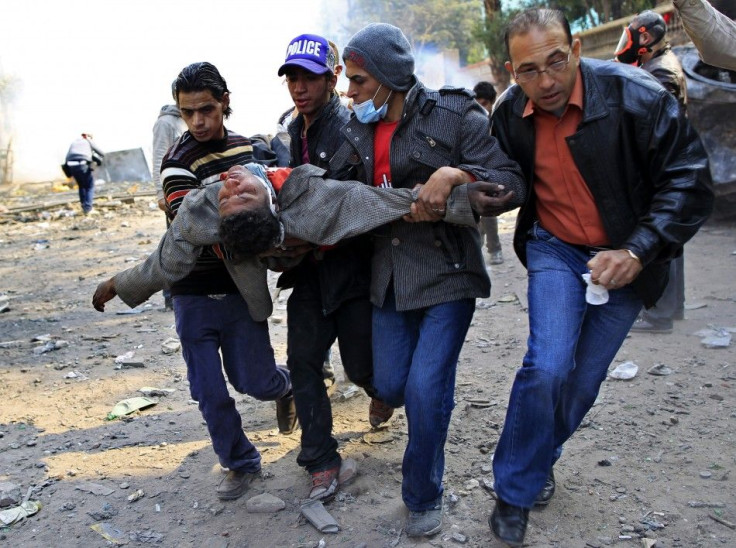U.N. Condemns Egyptian Violence on 5th Day of Bloodshed

On the fifth day of protests and rioting in Egypt, the United Nations has condemned the violence and the use of excessive force by security forces.
I urge the Egyptian authorities to end the clearly excessive use of force against protesters in Tahrir Square and elsewhere in the country, including the apparent improper use of tear gas, rubber bullets and live ammunition, Navi Pillay, the U.N. High Commissioner for Human Rights, stated on Wednesday.
Some of the images coming out of Tahrir, including the brutal beating of already subdued protesters, are deeply shocking, as are the reports of unarmed protesters being shot in the head, she said.
Indeed, at least 38 civilians have been killed in the protests against the ruling military council, some from being shot by live ammunition, others from the batons of riot police officers. About 2,000 also have been injured in the clashes, most of them demonstrators, but some injuries were suffered by police officers who were pelted with bricks and homemade fire-bombs.
Wednesday morning also saw an image familiar to Tahrir Square just 10 months ago; three tanks reportedly rolled into the square, both the center of the city of Cairo and the center of Egypt's opposition voice. But in February, the military was there to protect protestors from the government police thugs trying to scatter them. A common scene during the uprising that removed Hosni Mubarak were the phenomenon of civilians and soldiers standing together on these same tanks. The vehicles' treads served as pillows for the same weary people in the square on Wednesday.
Now, the tanks are being used to try to break up protests once more, the Egyptian people haven't been persuaded to move.
Like in January and February, the current protesters want the government to go. Disenfranchised and disillusioned by the supposedly temporary Supreme Council of the Armed Forces (SCAF), Egyptians are trying to speed up social and political change the only way they know how -- by revolting. And in doing so, protestors argue, they're revealing the SCAF to be what it truly is: a despotic group of thugs who prefer power over progress.
In responding to the demonstrations, sitting Egyptian leader Field Marshal Mohammed Hussein Tantawi made a public address on Tuesday night, promising a transition of power will happen by July 2012. Protestors believe the continued unrest on Wednesday proved that's not soon enough.
If Tantawi makes enough concessions and fulfills the July 2012 promise, which is looking doubtful, the next hurdle will be presidential elections. Egyptians will get to practice next week, when parliamentary elections will go ahead as scheduled.
[It is] imperative that the Egyptian authorities ensure the respect of freedom of expression, assembly and association, and of the press, during the electoral process, said Pillay.
The Egyptian authorities have an obligation to provide protection for all and ensure a peaceful and safe environment in the lead-up to next week's crucial elections.
The people of Egypt deserve to exercise their right to vote in the country's first elections since the departure of former President Mubarak in a violence-free environment, she added.
© Copyright IBTimes 2025. All rights reserved.





















